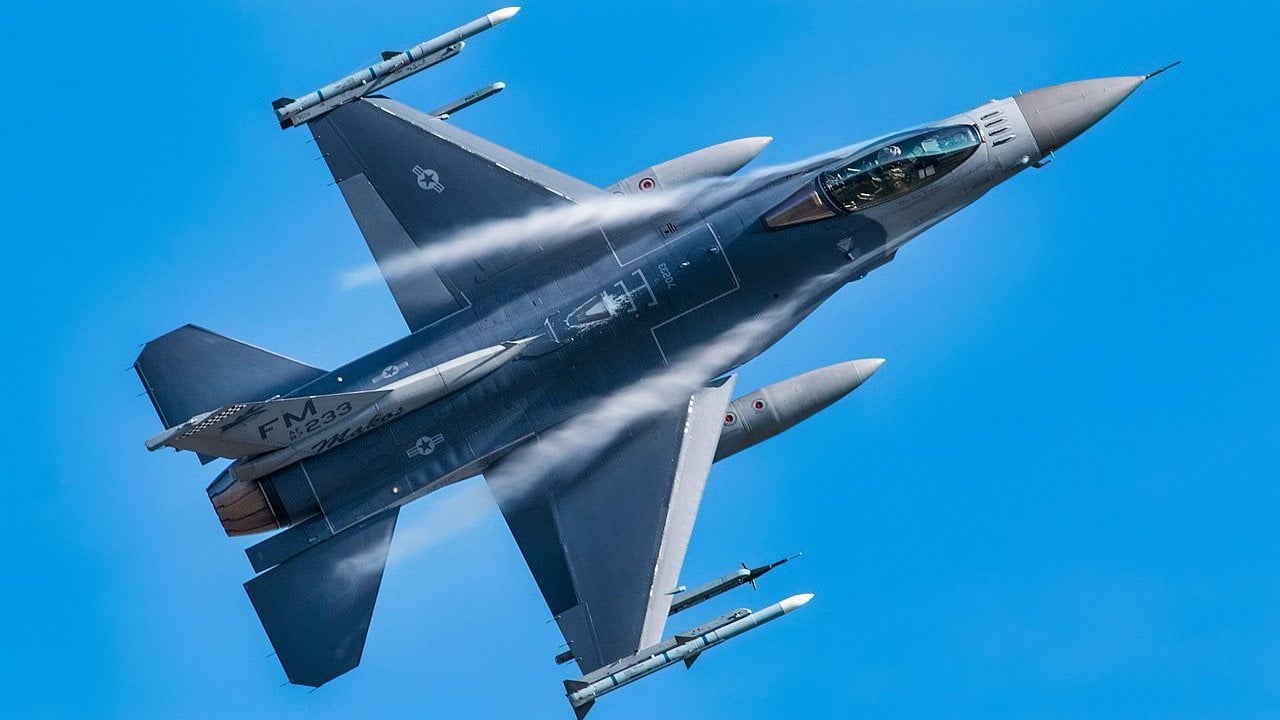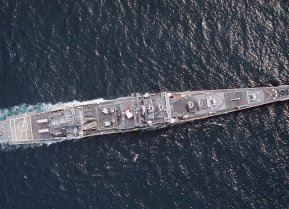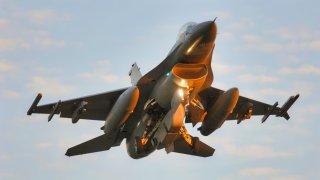The F-16 Fighting Falcon – A Potential Game Changer for Ukraine Against Russia
The first group of Ukrainian pilots to operate the F-16 Fighting Falcon jets has graduated from a British military flight school, marking a significant milestone in Ukraine's effort to modernize its air force.
Summary: The first group of Ukrainian pilots to operate the F-16 Fighting Falcon jets has graduated from a British military flight school, marking a significant milestone in Ukraine's effort to modernize its air force. These 10 pilots completed basic flying, ground school, and language training in the UK and will proceed to advanced flying training with the French Air Force before transitioning to F-16s. This initiative is part of the Air Capability Coalition, led by the United States, Denmark, and the Netherlands, aiming to bolster Ukraine's defense capabilities against Russia's invasion. The UK's contribution extends beyond training pilots; it includes leading maritime and drone coalitions and providing Ukraine with long-range cruise missiles. The introduction of F-16 jets, contributed by Denmark, the Netherlands, Norway, and Belgium, is expected to significantly enhance Ukraine's air force, currently relying on Soviet-era aircraft. Despite the Kremlin's dismissal of the F-16s' impact, Ukraine and its allies view these advanced fighter jets as a game-changer in the conflict.
F-16 Fighting Falcons: Boosting Ukraine's Air Defense Capabilities
The first Ukrainian pilots who will be operating the F-16 Fighting Falcon later this year have graduated from the British military flight school. The 10 pilots received basic flying, ground school, and language training, and will next move to advanced flying training provided by the French Air Force before learning to fly F-16 fighter jets.
The effort is a key UK contribution to the Air Capability Coalition, co-led by the United States, Denmark, and the Netherlands, which is helping build an air force consisting of modern fighter jets to form the cornerstone of Ukraine's armed forces, the British Ministry of Defence announced.
The capability coalitions were established last year to provide a long-term commitment to supporting Ukraine's armed forces, with the UK co-leading the maritime and drone coalitions.
"I would like to congratulate these brave pilots on completing their initial training here in the UK. Thanks to the world-renowned skills of RAF, these pilots have received some of the best training available and are now a step closer to joining the fight against Putin's illegal invasion," said UK Secretary of State for Defence Grant Shapps.
"The UK has led the way in building Ukraine's air capabilities over the last two years, enhancing its aircraft with additional equipment, as well as being the first nation to provide long-range cruise missiles to Ukraine," Shapps added. "Ukraine has been using its Air Force to devastating effect, degrading the Russian Black Sea Fleet and severely damaging its Headquarters. This milestone is another step forward for Ukraine's aerial capabilities – together with our allies we are showing that we will continue to stand by Ukraine's side."
On Friday, the Royal Air Force (@RoyalAirForce) shared images of the pilots as they were undergoing training on X, the social media platform formerly known as Twitter, with the caption, "Ten Ukrainian pilots have graduated from Elementary Flying Training with the RAF, preparing them for advanced fast jet training and conversion to F-16 with partner nations from the Air Force Capability Coalition."
Training to Continue
Though the Royal Air Force (RAF) does not operate the F-16 fighter jets, the UK was still able to provide general aircraft handling, flying by the aircraft's instruments, low-level navigation, and advanced formation flying by experienced RAF instructors.
The Ukrainian pilots also received English language instruction to assist in their training and to boost interoperability with NATO air forces – with English as the standardized international flight language. The aviators join more than 60,000 Ukrainians who have received training in the UK since Putin first ordered the invasion of Crimea in 2014, including 36,000 recruits since 2022 through Operation Interflex.
The Fighting Falcon – A Potential Game Changer for Ukraine
The F-16 Fighting Falcon has been seen as offering a significant boost to Ukraine's capabilities, as its air force currently consists of Soviet-era aircraft. The F-16 could provide a strong deterrent and highly effective countermeasure against Russia's aircraft – limiting their ability to attack targets within Ukraine.
NATO member Denmark led the European effort last spring to provide Ukraine with F-16s. The F-16s were on the list of Western-made military hardware requested by Ukrainian President Volodymyr Zelensky, along with tanks, air defense systems, and artillery.

The Biden administration only reluctantly gave in to Ukraine's demands, last summer by allowing NATO allies to provide the F-16s to Kyiv. Those jets were being phased out in some European militaries in favor of the newer F-35 Lightning II.
Denmark, the Netherlands, Norway, and Belgium committed to sending a combined 45 Fighting Falcon jets to Ukraine, enough to equip three small squadrons. As previously reported, the first of the aircraft are expected to arrive in Ukraine by July. Denmark is on track to send the first six in the late spring, with 13 more due to arrive over the rest of the year and into 2025.
Putin Dismissed the F-16 Fighting Falcon
The Kremlin has downplayed the threat of the F-16, and Russian President Vladimir Putin has even dismissed claims that the F-16s will be able to flip the course of the war in Ukraine, as Moscow has recently appeared to gain the upper hand.
Putin suggested the F-16s would be as easily destroyed as the German-made Leopard 2 main battle tanks (MBTs). However, the Kremlin's losses of tanks and aircraft still greatly exceed that of Ukraine.
Author Experience and Expertise: Peter Suciu
Peter Suciu is a Michigan-based writer. He has contributed to more than four dozen magazines, newspapers, and websites with over 3,200 published pieces over a twenty-year career in journalism. He regularly writes about military hardware, firearms history, cybersecurity, politics, and international affairs. Peter is also a Contributing Writer for Forbes and Clearance Jobs. You can follow him on Twitter: @PeterSuciu. You can email the author: [email protected].
Image Credit: Shutterstock.


